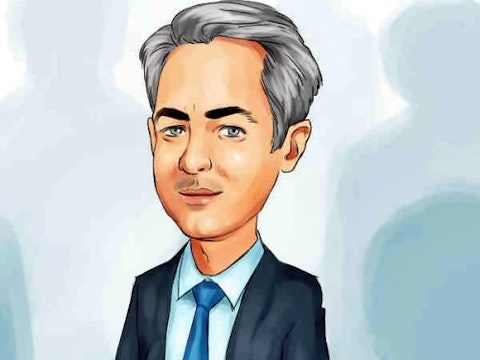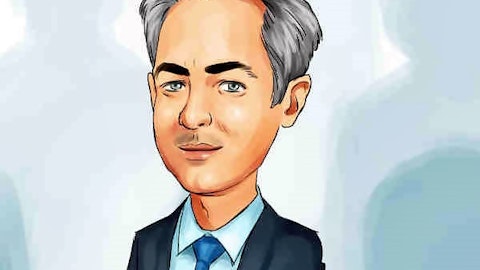Pershing Square Capital Management is a New York-based activist hedge fund run by billionaire activist Bill Ackman. He founded the firm in 2004 and has routinely beaten the S&P 500 index by a big margin. Pershing Square Capital has been known to take large equity stakes in companies and then improve their operations by working with the management. According to the fund’s third-quarter letter to shareholders, it performed more or less in line with the broader market showing a net return of 2.9% as compared to the 2.8% return given by Dow Jones. However, year-to-date, Pershing Square declined by 13.5% net of fees, versus the 12.6% gain registered by Dow Jones.
Pershing Square is one of over 700 funds we track at Insider Monkey. We’ve developed an investment strategy that has delivered market-beating returns over the past 12 months. Our strategy identifies the 100 best-performing funds of the previous quarter from among the collection of 700+ successful funds that we track in our database, which we accomplish using our returns methodology. We then study the portfolios of those 100 funds using the latest 13F data to uncover the 30 most popular mid-cap stocks (market caps of between $1 billion and $10 billion) among them to hold until the next filing period. This strategy delivered 18% gains over the past 12 months, more than doubling the 8% returns enjoyed by the S&P 500 ETFs (see more details).
The letter also showed that Valeant Pharmaceuticals Intl Inc (NYSE:VRX) was the biggest contributor to Pershing’s performance during the third quarter adding 1.5% to the gross performance of the fund. Unlike other large hedge funds, Bill Ackman takes large concentrated bets and his fund had just nine long US positions at the end of the third quarter, reflecting his strong conviction in these stocks. This makes Pershing Square Capital Management’s stock holdings extremely important from an investor’s perspective. Having said that, let’s take a closer look at some companies that Pershing discussed in its latest letter to investors.

Pershing Square Capital Management acquired a 9.9% stake in Chipotle Mexican Grill, Inc. (NYSE:CMG) during the third quarter at an average price of $405 per share. In its latest 13F filing, the fund disclosed holding 554,213 shares of Chipotle Mexican Grill worth $234.71 million. Bill Ackman’s fund believes that a good time to buy a great business is when it is facing temporary issues. Chipotle Mexican Grill, Inc. (NYSE:CMG) saw a 36% decline in unit sales due to food safety issues beginning in the fourth quarter of 2015 leading to a fall in stock price. However, the fund considers that this is a temporary issue and the business will not only recover, but become much stronger with the passage of time. Moreover, the investor is positive on Chipotle Mexican Grill, Inc.(NYSE:CMG) because of a number of factors:
“i) A strong and relevant brand built by visionary leadership
ii) A differentiated product offering with a highly attractive value proposition
iii) Substantial scale in the fast casual industry and first-mover advantage in real estate
iv) Strong unit economics and extremely high returns on capital, driven by a well-honed model that facilitates best-in-class throughput
v) Enormous growth opportunities including new units and operating enhancements such as mobile ordering and catering.”
The company’s stock is trading at around 10% below Pershing Square’s average buy price and has seen a decline of 15% over the last three months.
Follow Chipotle Mexican Grill Inc (NYSE:CMG)
Follow Chipotle Mexican Grill Inc (NYSE:CMG)
Receive real-time insider trading and news alerts
Restaurant Brands International Inc. (NYSE:QSR) represents Pershing’s largest position, with the fund owning 39.15 million shares valued at $1.75 billion as of the end of September. In the letter, the investor pointed out that Restaurant Brands International Inc. (NYSE:QSR) reported strong quarterly results by executing on its three key growth drivers: same store sales, net unit growth, and operational efficiency. In the third quarter, the company generated 2% same store sales growth in its Burger King and Tim Hortons concepts. The company continued to improve the efficiency of Tim Hortons’ cost structure by reducing overhead costs by more than 8% during the quarter and meaningfully increasing margins in the franchised and distribution businesses. The stock has returned an impressive 25% year-to-date.
Follow Restaurant Brands International Inc. (NYSE:QSR)
Follow Restaurant Brands International Inc. (NYSE:QSR)
Receive real-time insider trading and news alerts





